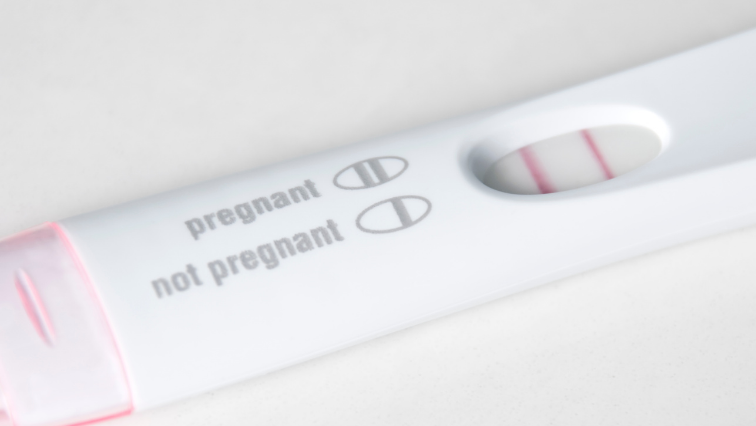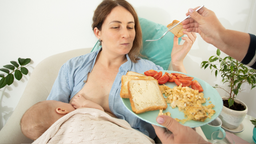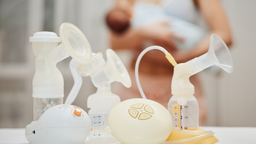Written by: Bentley Porterfield-Finn, Doula
From the time we hit puberty, we are given a plethora of information on contraception, safe sex, and birth control. And for many, it can feel like we spend much of our fertile years trying to avoid getting pregnant. However, what happens when we decide we do want to have a baby? Having a baby is not as simple as advertised, and the struggle of trying to conceive is not discussed as openly. In this article, I want to offer a few evidence-based tips on how to boost fertility.
Conceiving a child is not always as straightforward as we would like it to be; however, the good news is that many couples trying to conceive are eventually successful. A 2019 study found that many people will get pregnant within two to three menstrual cycles, and 90% of people trying to conceive will get pregnant within a year [1]. Another study found 30% of couples trying to conceive did so in the first month, 75% of couples conceived within 6 months, 90% of couples conceived within 1 year, 95% of couples conceived within 2 years [2]. This is all good news, but I know it does not automatically do much to quell the anxiety and impatience that can accompany the conception journey.
HOW CAN YOU BOOST YOUR FERTILITY?
There are a few things you can do to boost your fertility and thus improve your chances of conceiving. Put simply, conception requires a healthy egg, healthy sperm, and a healthy environment for the baby to grow [3]. Ideally, the following tips should be integrated 3-6 months before trying to conceive, as this is how long it takes for a follicle and sperm to develop.
1. Know Your Menstrual Cycle
Know and track your menstrual cycle. I grew up thinking I could get pregnant on any day of my cycle, but that isn’t true. The reality is that a female with a healthy menstrual cycle is only fertile for five or six days of her cycle [4]. Another common misconception is that we always ovulate on day 14, but that is also not true. You do not ovulate on the same day every month--some people might ovulate on day 11, while others ovulate on day 16. Accurately tracking ovulation allows you to determine your unique fertile window, and more accurately, time sex for conception.
In order to pinpoint which day you truly ovulate, I recommend learning to track your cervical fluid, taking your basal body temperature, or using ovulation (LH) strips. This is a rather simplistic breakdown of ovulation, but it is a very important part of conception. For more information, I recommend reading Lisa Hendrickson-Jack’s book, The Fifth Vital Sign.
2. Focus On Nutrient-Dense Foods
Ensure you have a nutrient-dense diet and start taking a prenatal vitamin. A nutrient-dense diet involves consuming specific nutrients to help improve the balance and function of the whole body. This, in turn, allows the reproductive system to thrive [5]. A balanced diet filled with healthy foods supports hormonal balance and encourages egg and sperm health, which increases chances of healthy conception. A nutrient-dense diet should include a balance of omega-3 fats, protein, and foods rich in vitamins and minerals. Fertility-boosting foods include nuts and seeds, wild-caught fish like salmon or cod, leafy greens, beans and legumes, and so much more! It is helpful to start taking a high-quality prenatal vitamin 3-6 months before trying to conceive. This will support fertility and provide nutrients for your growing baby once you do conceive.
3. Reduce Environmental Toxins
Reduce your exposure to environmental toxins. Many environmental toxins are endocrine disruptors. This means they impact hormonal regulation. A study from 2018 evaluating the link between toxins and infertility states, “The research is quite clear that metals and chemicals in air, water, food, and health-and-beauty aids are damaging fertility in many ways” [6]. It is important to ensure your beauty products, cleaning products, and food and water are clean and free from toxins. For more information on this link, I recommend the book It Starts With the Egg by Rebecca Fett.
WHAT ABOUT SPERM HEALTH?
Do things to support sperm health as well. Fertility support is not just for females! In fact, about half of fertility challenges are due to what is called “male factor infertility”[7]. Sperm health is determined by sperm count, motility, and morphology. Your partner should be taking similar measures to you to improve their sperm health. This means especially consuming nutrient-dense foods, avoiding toxins, limiting alcohol intake, quitting smoking, and getting adequate exercise [8]. Sperm takes about 40-80 days to develop from start to finish [9]. This means lifestyle changes a man makes today will impact the sperm he ejaculates in 3 months. Thus, similar to the female partner, males should initiate lifestyle changes to support sperm health 3-6 months prior to trying to conceive.
DON'T FORGET ABOUT YOUR EMOTIONAL HEALTH!
These are some core actions that can be taken to boost fertility, but this list is not exhaustive. It is also important, for example, to manage stress levels. I also want to acknowledge the emotional difficulties that can accompany fertility struggles. When trying to conceive, weeks can feel like months, and months can feel like years. Make sure you are taking actions to support your mental and emotional health as well.




